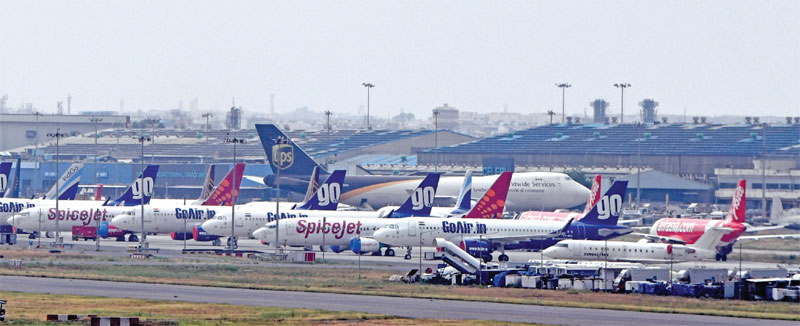Boeing sees growth in commercial aviation post-Covid
Smruti D
Ahead of the Dubai air show to be held from 14-18 November 2021, Boeing, the US aerospace major held virtual sessions briefing the press on the market outlook.

The 20-year outlook for Middle East, released by the company, states that the aircraft demand in the region would remain stable. The plane maker forecast 3,000 new commercial jet deliveries worth 740 billion USD by 2040. Boeing’s managing director of commercial marketing for the Middle East and Africa, Randy Heisey said that the Middle East’s role as a global connecting hub continues to be important for developing markets to and from South-East Asia, China, and Africa.
“The three most important things in the market today are how passengers are behaving, how airlines are able to supply in terms of resources or capacity and most importantly how government regulations are restricting international travel,” Heisey added.
While the current market conditions remain dynamic, the past year has proven that there is confidence in the health and safety of air travel and when confidence and conditions allow governments to reopen borders, the demand has shown it is resilient. Relationship between airlines, passengers and governments remain key to the recovery in going forward.
According to Heisey, wherever restrictions have been lifted, travel is recovering quickly. For instance, in places like the US, Europe and China, when restrictions have been lifted, the recovery has been most rapid. However, there have been some ups and downs.
In general, the industry is in fact on a positive trajectory. Not only are flights returning to domestic and regional markets, but globally, over 70 per cent of the eats are occupied.
New research commissioned by Amadeus recently revealed that 50 per cent of travellers globally and 57 per cent of those in India, expect to take a flight for business later this year. Indian business and leisure travellers are focusing on domestic and regional travel, with both groups ranking Asia as the top destination for their trips in the next year.
The global study of nine markets provides insight on traveller attitudes and sentiment around restrictions, digital health data and sustainable travel. The survey of 9,074 consumers across France, Germany, India, Spain, Russia, Singapore, the UAE, the UK, and the US shows that the appetite for travel is high. At the same time, greater clarity on restrictions and guidelines will be key to unlocking increased traveller confidence. Over a third (35 per cent) of travellers said the current international guidelines around where and how to travel are confusing, making them less likely to book business and/ or leisure travel. In Asia Pacific (APAC), 37 per cent of travellers in India and 40 per cent of those in Singapore shared the same sentiment.
The survey results reveal that 93 per cent of travellers globally would be willing to provide personal data for the effective use of digital health passports or certificates, a slight increase from 91 per cent in February 2021. In India and Singapore, the figure was slightly higher at 95 per cent than the global average.
Almost half (48 per cent) of business travellers worldwide would be willing to provide their health data to visit a conference or event, compared to 53 per cent in India and 54 per cent in Singapore.
Although receptiveness to travel in the next year is high, the travel industry needs to consider how to respond to changing traveller concerns as the travel environment continues to adapt. The three main concerns travellers have are:
- Fears of catching COVID-19 while travelling (41 per cent) (India: 54 per cent; Singapore: 54 per cent)
- Self-isolation or quarantine before and after travel (41 per cent) (India: 42 per cent; Singapore: 44 per cent)
- Changing restrictions resulting in last minute cancellations (37 per cent) (India: 29 per cent; Singapore: 41 per cent)
- In comparison to the previous studies, fears of catching the virus maintain a top concern for travellers, alongside self-isolation, or quarantine.

